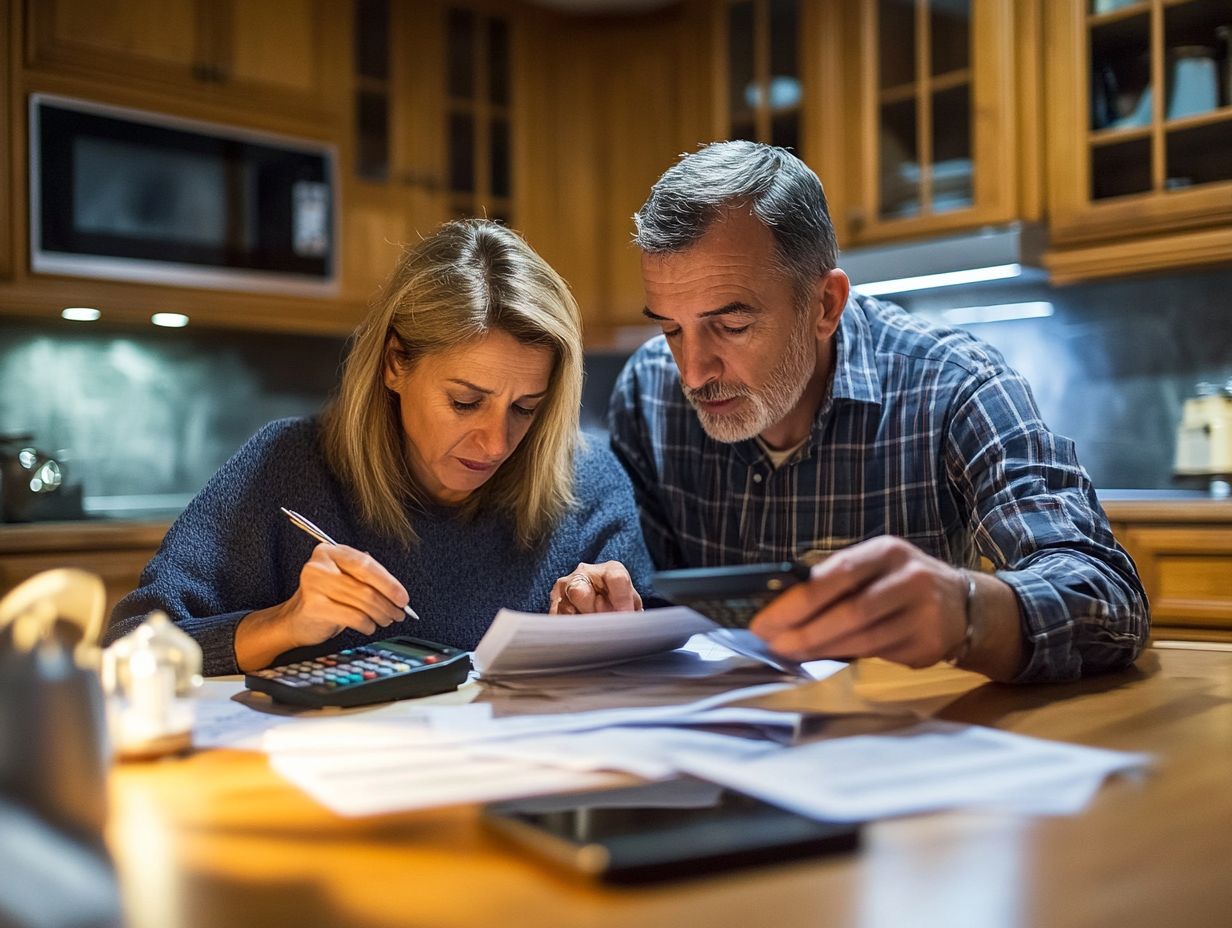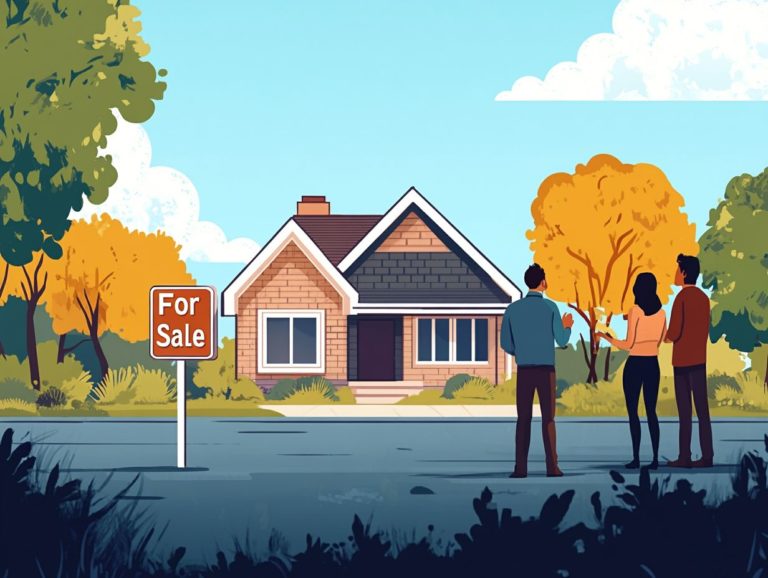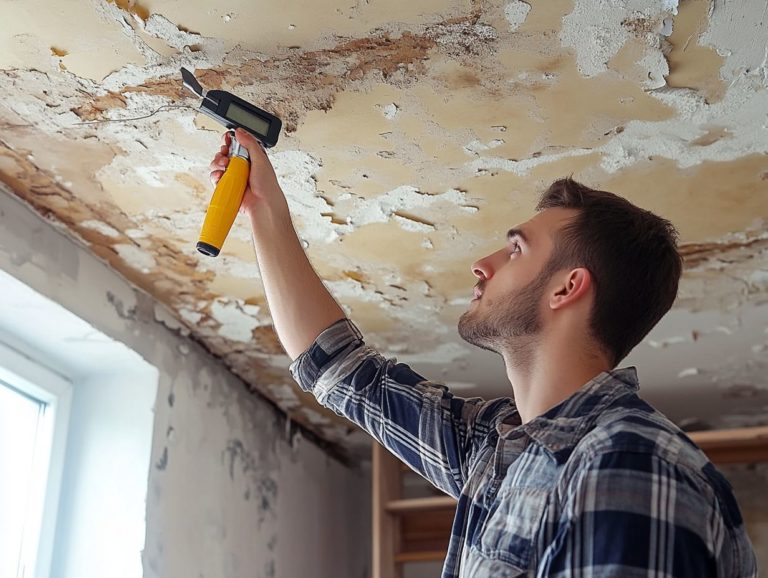Can I Buy a Home with Bad Credit?
Buying a home is a dream for many, but what happens when your credit score isn t exactly shining? While bad credit may seem like a formidable barrier, it doesn t have to stand in the way of your homeownership aspirations.
In this article, you’ll discover what qualifies as bad credit, how it can affect your purchasing power, and the variety of options available for those with lower scores.
From government programs to alternative lending solutions, we delve into strategies for improving your credit and preparing for a successful home-buying experience.
Whether you re just beginning your journey or seeking ways to enhance your financial standing, this guide offers the insights you need to navigate the path to homeownership with confidence.
Contents
- Key Takeaways:
- Understanding Bad Credit and Its Impact on Home Buying
- Options for Buying a Home with Bad Credit
- Improving Your Credit Score for Home Buying
- Other Considerations for Home Buying with Bad Credit
- Frequently Asked Questions
- Can I Buy a Home with Bad Credit?
- What is considered a bad credit score for buying a home?
- Can I qualify for a mortgage with bad credit?
- How can I improve my chances of getting a home loan with bad credit?
- If I have a low credit score, can I still get a home loan with a co-signer?
- Are there government programs to help me buy a home with bad credit?
Key Takeaways:

- It is possible to buy a home with bad credit, but it may require alternative lending options or government programs specifically for low credit scores.
- Improving your credit score can increase your chances of getting approved for a home loan and potentially lower interest rates.
- Other factors, such as having a down payment and working with a real estate agent, can also play a role in successfully buying a home with bad credit.
Understanding Bad Credit and Its Impact on Home Buying
Understanding bad credit and its implications for home buying is essential for anyone looking to secure a mortgage. When your credit score dips below a certain level, commonly labeled as bad credit, it can profoundly influence your dealings with mortgage lenders.
This often results in higher interest rates and less favorable loan options. Such a situation complicates obtaining mortgage approval and calculating manageable monthly payments.
Furthermore, your credit report is a critical component that showcases your creditworthiness something lenders carefully examine when making financial decisions.
What is Considered Bad Credit?
Bad credit usually means your credit score is below 580, as defined by the scoring model that lenders use to evaluate credit and credit bureaus like Equifax, Experian, and TransUnion.
If you find yourself in this category, you might struggle to secure traditional loans or attractive mortgage options due to how lenders perceive your creditworthiness.
This predicament can lead to a frustrating cycle. Different credit bureaus may report varying scores, which can create confusion about your true credit standing.
Each lender interprets these scores in their own way, adding yet another layer of complexity when you re trying to secure a home loan.
Consequently, you may find that bad credit presents obstacles not just in obtaining loans but also in achieving favorable repayment terms. This could potentially affect your financial stability for years to come.
How Does Bad Credit Affect Home Buying?
Bad credit can seriously hinder your ability to buy a house, as mortgage lenders frequently view low credit scores as a significant risk factor in their financial assessments.
With a lower credit score, you may find yourself facing higher interest rates. In some cases, you could even be denied mortgage approval altogether.
This situation impacts homebuyers in various ways, primarily narrowing down your choices when it comes to available loan products. For instance, if you have poor credit, you might primarily be offered high-interest loans, which can drastically inflate your monthly payments.
Lending requirements often tighten, pushing you toward larger down payments or necessitating a co-signer.
These challenges affect your monthly mortgage costs and can also restrict the types of properties you can realistically consider. This makes the dream of homeownership feel increasingly distant.
With these financial strains, you may ultimately find yourself settling for less desirable options, which could impact your long-term financial stability and overall satisfaction.
Options for Buying a Home with Bad Credit
Don’t let bad credit hold you back! You can still achieve your dream of homeownership with the right options.
Even with the hurdles that bad credit presents, you still have viable pathways to homeownership.
FHA loans, VA loans, USDA loans, and certain conventional loans are tailored to assist individuals like you with lower credit scores.
These options can help you navigate financial challenges and turn your dream of owning a home into a reality.
Government Programs for Low Credit Scores

Government programs like FHA, VA, and USDA loans support individuals with low credit scores who want to buy a home. These loans, backed by the Department of Veterans Affairs and the Federal Housing Administration, have lenient credit requirements and lower down payments.
This help is valuable for people struggling to get traditional loans. For instance, FHA loans accept credit scores as low as 580 with a 3.5% down payment, making homeownership more accessible.
VA loans also provide zero down payments for eligible veterans. USDA loans focus on rural areas with down payments as low as 1%.
Take, for example, a single mother who achieved her dream of owning a home with an FHA loan despite having a credit score of 620. Such stories show how these programs can change lives.
Unfortunately, many potential buyers don’t know about these opportunities. They’re waiting to be explored!
Alternative Lending Options
If you have bad credit, alternative lending options might help you buy a home, although they often come with higher costs. Mortgage lenders who specialize in loans for high-risk clients may offer financing, but expect private mortgage insurance and higher monthly payments.
Consider alternatives like hard money loans or subprime lenders. These options can help aspiring homeowners who find it tough to get traditional financing.
While these loans have easier qualification criteria, they often come with higher interest rates and fees. Engaging a co-signer can greatly improve your chances of approval since their good credit can reassure lenders.
However, remember that both you and your co-signer share the repayment responsibility. This can put a strain on both relationships and finances, so think carefully before proceeding.
Improving Your Credit Score for Home Buying
Boosting your credit score is key to increasing your chances of mortgage approval and getting better interest rates. Engage in credit counseling, monitor your FICO score, and use strategies like rapid rescore to enhance your credit profile.
Steps to Take to Improve Your Credit
Start by obtaining your credit report and reviewing your accounts. If needed, seek professional credit counseling. Addressing high debt-to-income ratios and correcting report errors can significantly improve your financial standing.
Next, create a consistent payment strategy. Focus on paying off debts while making timely payments on existing accounts.
Establish a budget to manage everyday expenses and prioritize debt repayment. Regularly check your credit report to catch errors early and get a clear view of your financial health.
By developing responsible financial habits like limiting new credit applications and maintaining low credit utilization you’ll promote continuous credit improvement over time.
Timeline for Credit Score Improvement
The timeline for improving your credit score can vary significantly. With the right strategies, you could see exciting improvements in just a few months, especially if you use rapid rescore techniques.
Many factors influence how quickly you see these changes. Your payment history is crucial; make timely bill payments to avoid the damaging effects of missed due dates.
Keep your credit card balances below 30% of your credit limits to boost your credit utilization ratios.
You can notice significant shifts within three to six months after implementing sound strategies. For sustained growth, regularly review your credit reports and set up alerts for due dates. This will help you stay on track.
By keeping a close eye on these aspects, you ll not only maintain momentum but also cultivate a proactive approach to your credit health.
Other Considerations for Home Buying with Bad Credit

When you’re looking to buy a home with bad credit, several key factors demand your attention.
First and foremost, a substantial down payment is crucial. It indicates your commitment and helps alleviate some risks linked to poor credit, potentially leading to lower monthly payments and better loan terms.
Additionally, enlisting a knowledgeable real estate agent can be invaluable as you navigate the mortgage market. Their expertise can guide you toward options that align with your financial situation, making the process smoother and more manageable.
Importance of a Down Payment
A down payment plays an important role in your home-buying journey, especially if you’re navigating the waters of bad credit. It directly influences the loan-to-value ratio and can significantly reduce your monthly payments.
Mortgage lenders often view a larger down payment as a sign of financial responsibility, which can work to your advantage. By contributing a more substantial amount upfront, you position yourself for more favorable mortgage terms, including lower interest rates and reduced private mortgage insurance (PMI) costs.
For example, putting down 20% instead of 5% could save you thousands in interest over the life of your loan.
Industry statistics reveal that borrowers can save up to 0.5% on their interest rate for every 5% increase in the down payment. This can lead to a significant improvement in long-term affordability, making homeownership not only more attainable but also more sustainable.
Working with a Real Estate Agent
Partnering with a knowledgeable real estate agent can be a game changer if you have bad credit. They bring valuable insights into the home-buying process and can connect you with suitable mortgage lenders.
Beyond just finding lenders who specialize in loans for those with credit challenges, a good agent facilitates open communication. This ensures you fully understand your options and requirements.
They ll recommend practical strategies, such as improving your credit score through timely payments or reducing outstanding debts, enabling you to take proactive steps toward homeownership.
When selecting the right agent, prioritize finding someone experienced in helping clients in similar situations, with a proven track record of successful negotiations. This relationship can pave the way for a smoother home-buying journey, transforming obstacles into achievable goals.
Frequently Asked Questions
Can I Buy a Home with Bad Credit?
Yes, it is possible to buy a home with bad credit. However, it may be more challenging and require more effort on your part.
What is considered a bad credit score for buying a home?

A credit score below 620 is generally considered a bad credit score for buying a home. However, this may vary depending on the lender and the type of loan you are applying for.
Can I qualify for a mortgage with bad credit?
Yes, you may still qualify for a mortgage, even with bad credit. You might need a larger down payment or face a higher interest rate.
How can I improve my chances of getting a home loan with bad credit?
To boost your chances, pay off outstanding debts and dispute any errors on your credit report. Reducing your debt compared to your income also helps.
If I have a low credit score, can I still get a home loan with a co-signer?
Yes, a co-signer with a good credit score can increase your approval chances. Remember, the co-signer is responsible for the loan if you can t make payments.
Are there government programs to help me buy a home with bad credit?
Yes! Programs like FHA loans offer flexible credit requirements for buyers with bad credit. Research and consult a lender to see if you qualify.






